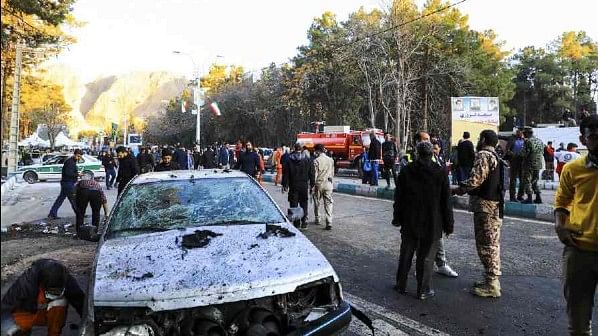
Iran is facing public anger after the Islamic State took responsibility for deadly bombings in Kerman, killing 88 people and injuring more than 200. The government of Iran initially blamed Israel for the attack but later claimed that another enemy was responsible. Terrorism in Iran exposes a vulnerability it doesn't want to admit as it has been using its military presence in Iraq and Syria as a strategy to keep terrorist groups at bay, but this sense of security was shattered on Wednesday with the deadliest terrorist attack since 1979. The Islamic State claimed responsibility for the attacks and threatened more attacks against Iran.


